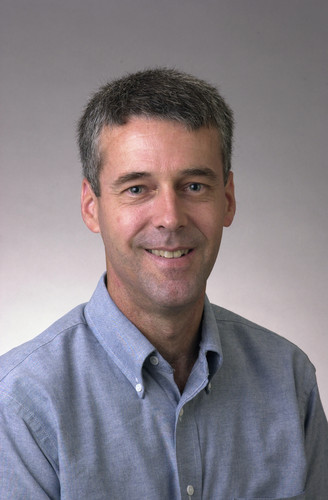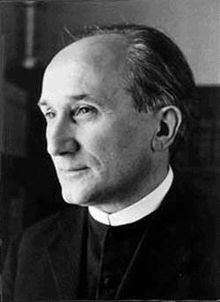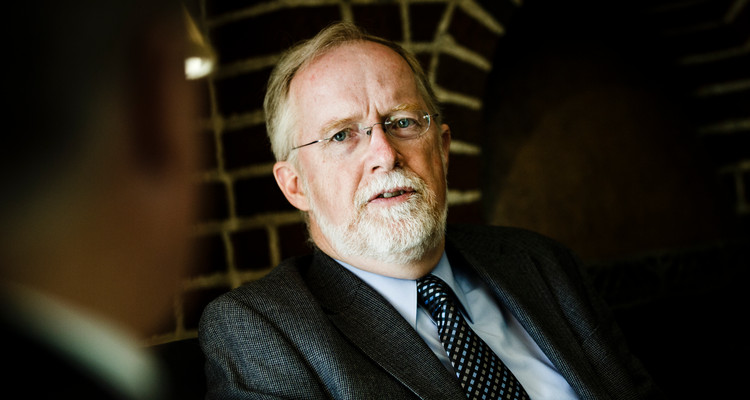In the fifth annual Catholic Studies Master of Arts program’s Thought and Culture Lecture Series, Dr. David Foote, professor of Catholic Studies, spoke on Monsignor Romano Guardini, one of the most influential theologians of the early 20th century. His work is undergoing a Catholic revival in intellectual circles as he promoted a holistic Catholic worldview, whose fundamental premise was the unity of Christian existence.
Foote began his lecture by asking the perennial question in Catholic academics: Why does this work from the mid-1900s matter today? He then said, “In Guardini’s essay, ‘Thoughts on the Relation between Christianity and Culture,’ Guardini writes, ‘The task of Christian culture is twofold: on the one hand, to penetrate and transfigure nature by grace; on the other, to unlock revelation and take possession of it by means of nature.’ Such was the task to which Guardini devoted his academic career. Guardini articulated and practiced a different map of the world: a ‘Catholic Weltanschauung,’ or Catholic worldview, whose fundamental premise was the unity of Christian existence. This, he writes, has been ‘a basic directive for all my work, namely, the attempt to view the pattern of Christian existence as a whole.’” Foote surmised that the questions and tasks Guardini asks his readers are still relevant today.
He told the audience Guardini began his academic career during a formative period in the history of European and American universities, marked by the differentiation and formation of academic disciplines as autonomous fields of knowledge. “While these developments have produced tremendous advances in knowledge, Guardini saw a perilous side as well,” Foote said. “Lacking a transcendent ground, the emerging configuration of academic disciplines fragmented knowledge, both horizontally (assigning to each discipline a discontinuous sector of reality) and vertically (by asserting the autonomy of each discipline against the claims of revelation). As Guardini recognized, mapping the world in this way would only ‘deepen and solidify the disintegration of modern man.’”
Foote also remarked to the extent that one imagines the world thusly, Christian belief became untenable. Guardini described three common, but ultimately unsuccessful, strategies of belief: The first response sought to preserve the unity and integrity of faith against the world. The second response was for believers to “pitch their tent on the seemingly more solid ground of the academic disciplines” and attempt to build a bridge across the chasm back to revelation; “this took for granted a chasm between faith and reason which, in fact, does not exist,” Foote noted. The third option, Foote said, was to “immanentize and relativize Christianity by dissolving it into a host of nominal Christianities which take their place in the democratic assembly of world religions, philosophies and ethical systems; in other words, to apply for citizenship in the horizontal plane.” None of these three options are valid for the Christian academic. Guardini’s response was the integrated holistic method of education, which is the work of the CSMA program.
Read more from Perspectives.






